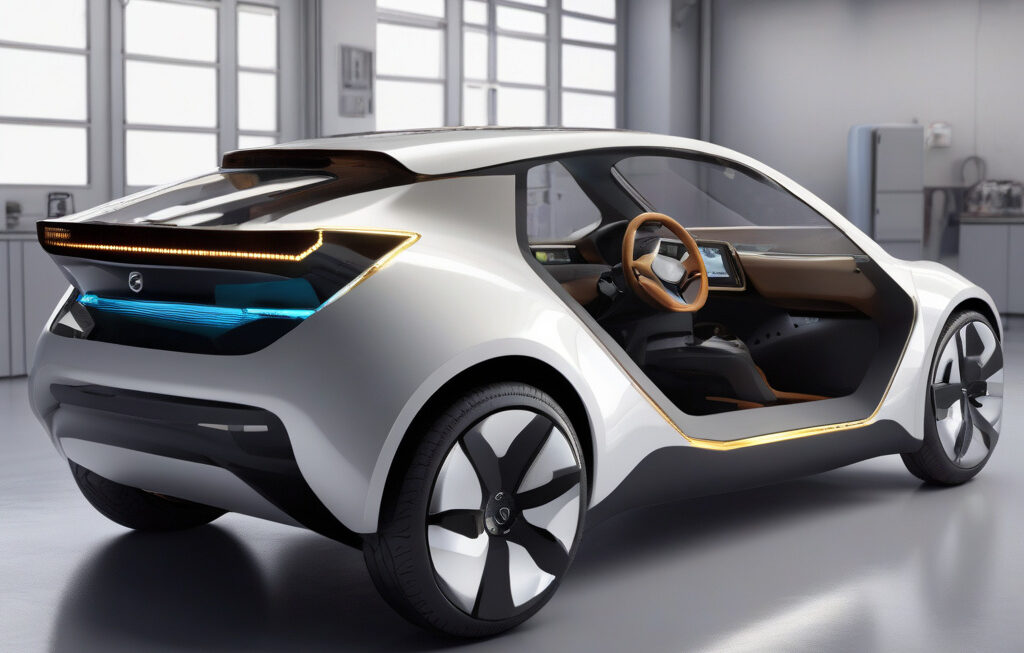Toyota Doubles Down on Electric Vehicles as Others Pull Back, Eyes 35% Shift by 2030
While the world sprinted toward an electric future, Toyota stood still. But the Japanese carmaker has made a significant pivot in its strategy, now doubling down on electric vehicles as others in the industry seem to be pulling back. This move signals a major shift in the automotive landscape, with Toyota setting its sights on a 35% electrification goal by 2030.
Toyota’s delayed entry into the electric vehicle market raised eyebrows among industry experts and consumers alike. While competitors like Tesla, Nissan, and Volkswagen surged ahead with their electric offerings, Toyota remained focused on hybrid technology. However, the tide has turned, and Toyota is now playing catch-up in the race towards electrification.
The company’s newfound commitment to electric vehicles is evident in its recent announcements. Toyota plans to introduce 30 new electric vehicle models globally by 2030, with sales targets of around 3.5 million units per year. This ambitious goal underscores Toyota’s determination to establish itself as a key player in the electric vehicle market.
One of the key factors driving Toyota’s electric vehicle push is the increasing consumer demand for sustainable transportation options. As awareness of climate change grows, more car buyers are looking for environmentally friendly alternatives to traditional gasoline-powered vehicles. By investing heavily in electric vehicles, Toyota aims to meet this demand and position itself as a leader in eco-conscious transportation.
Moreover, tightening emissions regulations around the world are pushing automakers to accelerate their electrification efforts. Countries like China, the European Union, and the United States are implementing stricter emission standards, incentivizing car manufacturers to ramp up their production of electric vehicles. Toyota’s shift towards electrification is not just a response to changing consumer preferences but also a strategic move to comply with evolving regulatory requirements.
In addition to addressing consumer and regulatory demands, Toyota’s pivot towards electric vehicles is also driven by technological advancements in the industry. As battery technology improves and charging infrastructure expands, electric vehicles are becoming more practical and appealing to a broader audience. Toyota is leveraging these technological developments to enhance its electric vehicle offerings and deliver a compelling driving experience to customers.
Furthermore, Toyota’s commitment to electric vehicles aligns with its long-term sustainability goals. The company has set ambitious targets to reduce its carbon footprint and minimize its environmental impact. By transitioning to electric vehicles, Toyota is not only reducing greenhouse gas emissions but also demonstrating its commitment to corporate social responsibility.
Despite its late start in the electric vehicle market, Toyota’s extensive experience in automotive manufacturing and its strong brand reputation give it a competitive edge. The company’s resources, technology, and global reach position it well to scale up its electric vehicle production and compete with established players in the market.
In conclusion, Toyota’s decision to double down on electric vehicles marks a significant turning point for the company and the automotive industry as a whole. By setting a 35% electrification target for 2030 and unveiling plans for a wide range of electric vehicle models, Toyota is signaling its commitment to shaping the future of transportation. As the world shifts towards sustainable mobility, Toyota is poised to lead the charge towards a greener, electrified future.
electric vehicles, Toyota, sustainability, automotive industry, climate change










